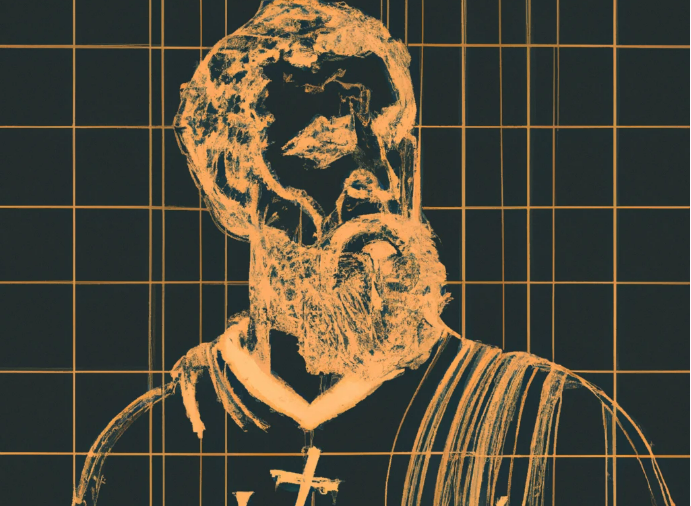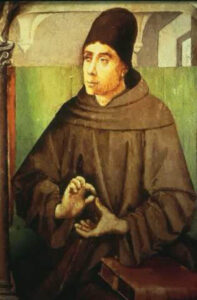Any Questions? Call us at 0419 395 782

Duns Scotus, born in the late 13th century, was a Scottish philosopher and theologian known for his innovative ideas and contributions to both fields. Often referred to as the “Subtle Doctor,” he is recognised for his complex arguments and intellectual prowess. Despite living in an era dominated by Thomas Aquinas’ teachings, Duns Scotus managed to leave a lasting impact on philosophy and theology through his original thoughts on topics such as metaphysics, ethics, and the nature of God.

John Duns Scotus was born around 1266 in the Scottish village of Duns. Little is known about his early life; however, it is believed that he joined the Franciscan Order at a young age. He studied at Oxford University under some of the most prominent scholars of his time before moving to Paris for further studies.
In Paris, Duns Scotus became well-known for his intellectual abilities as he engaged with other esteemed thinkers like Thomas Aquinas. His reputation eventually led him to teach at prestigious institutions such as Oxford University, Cambridge University, and finally back in Paris.
One significant contribution made by Duns Scotus to metaphysics was his concept of “univocity of being.” This idea challenged Aquinas’ belief that being (or existence) could only be spoken analogously across different categories or levels.
Instead, Duns Scotus proposed that being is a single concept applicable equally to everything that exists – whether it’s God or any created thing. This univocal understanding allowed him to argue against those who claimed that God’s existence could not be proven philosophically since it would require applying concepts derived from finite beings.
Duns Scotus also made substantial contributions to ethics with his development of the Divine Command Theory. This theory posits that the moral value of an action is determined solely by God’s command, rather than relying on any intrinsic qualities of the action itself.
This perspective contrasts with Aquinas’ Natural Law Theory, which asserts that moral principles can be discovered through reason and observation of nature. Duns Scotus’ Divine Command Theory emphasizes God’s omnipotent will as the ultimate source of morality, making obedience to divine commands a central aspect of ethical behavior.
In theology, Duns Scotus was a prominent defender of the doctrine of the Immaculate Conception – the belief that Mary, mother of Jesus Christ, was conceived without original sin. He provided a logical argument for this belief by emphasising God’s ability to preserve Mary from sin due to His absolute power.
Furthermore, Duns Scotus argued for a distinction between God’s ordained power (what He chooses to do) and His absolute power (what He can potentially do). This distinction allowed him to maintain both divine freedom and human free will in his theological framework.
Despite not being as well known as Thomas Aquinas or other medieval philosophers, Duns Scotus had a significant impact on philosophy and theology during his time. His ideas influenced later thinkers such as William Ockham and played an essential role in shaping Franciscan thought.
Today, Duns Scotus is remembered for his intellectual rigor and innovative ideas that challenged prevailing beliefs. His contributions serve as an enduring testament to the importance of questioning established doctrines while seeking new ways to understand complex philosophical questions.
View Secundus Liber Do Joanis Duns Scotti Medieval Philosophy on our Ebay Store.
View our store here.
If you love talking history, drop in and have a chat with Jennifer. Book a time here.
Ankh Antiquarian Books established in 1989, specialises in rare Antiquarian books and new books on the subject of Ancient Egypt and History. Our range of magazines include KMT A modern journal of Ancient Egypt (USA), Egyptian Archaeology Bulletin (the EES UK magazine) and The Nile, an Australian based magazine printed in the UK.

